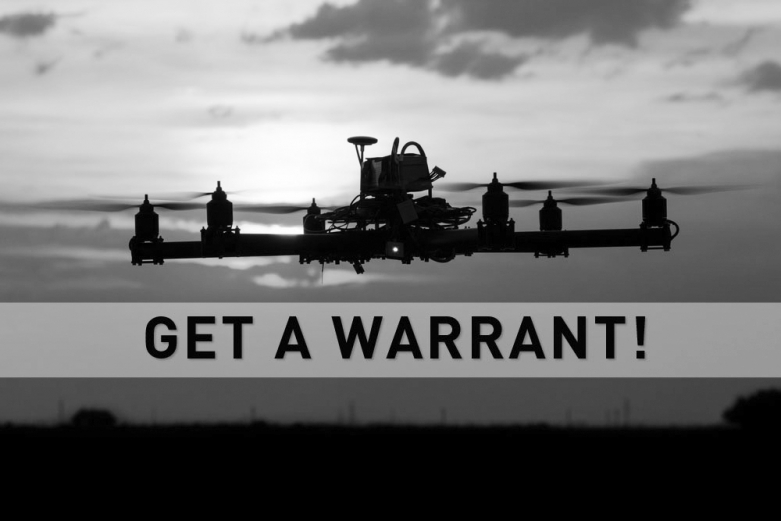Warrant for Drones Veto Was the Wrong Decision
Page Media

California had the chance to be a leader in requiring police to get a warrant to use surveillance technology. But Gov. Brown vetoed a bill, AB 1327, that would have done just that for police drones.
This is a big disappointment and Gov. Brown missed the mark with this veto.
AB 1327 would have provided basic statewide protections against abuse by police drones. Without it, cities and counties are left to figure it out on their own. So far, this has not gone well.
In San Jose, for example, it came to light this summer that the police department had acquired a drone in relative secret. In 2012 the Alameda County Sheriff tried to purchase a drone in secret.
The troubling trend of secrecy makes it challenging for the public to weigh in on drones and other surveillance technology. The lack of a statewide regulation puts an additional burden on cities and counties -- and on the public to demand privacy protections from their local leaders.
Absent a statewide warrant requirement, it's crucial that communities have a meaningful opportunity to weigh in on whether drones and other surveillance technologies should even be used at all. And, if they are, proper safeguards need to be in place.
In his veto message, Gov. Brown wrote that the bill's exceptions to the warrant requirement are "too narrow" and that it imposes requirements beyond the 4th Amendment and the strong privacy protections in the California constitution.
Great legal minds disagree with that assessment.
In a recent Sacramento Bee article, esteemed constitutional law scholar Erwin Chemerinsky wrote, "The warrant requirement long has been used to balance law enforcement needs and privacy interests. It should be applied to drones, and other emerging technology."
Chemerinsky and 40 other law professors wrote to Gov. Brown asking him to sign AB 1327, outlining privacy issues at stake and the importance of a warrant requirement for police drones.
To be sure, the courts will weigh in on this issue eventually. But it takes time for courts to work out legal protections involved with a new technology. In 2011 Gov. Brown vetoed a bill that would have required a warrant to search cell phones. This year the U.S. Supreme Court ruled against warrantless cell phone searches of arrestees. The Governor's veto was wrong then, and it's wrong now.
In the meantime Gov. Brown's veto of AB 1327 leaves Californians vulnerable to police misuse of drones.
Without proper safeguards, including a warrant requirement, drones and other surveillance technology have the potential to be misused for racial and religious profiling. After what we've learned about mass surveillance by the NSA and various police misconduct in Ferguson, Missouri, the public isn't buying law enforcement's "just trust us" approach anymore.
Ultimately, law enforcement needs to explain to the public why and how they plan to use drones or other surveillance technology.
Here at the ACLU we are going to keep working hard for meaningful protections against spying by drones and transparency in all police surveillance.
Natasha Minsker is the Associate Director at the ACLU of Northern California.
